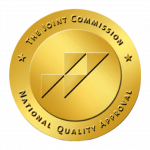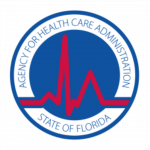What is an Intensive Outpatient Program (IOP)
An intensive outpatient program or IOP is a treatment program offered following inpatient treatment. These programs help those suffering from addiction integrate back into a normal lifestyle outside of a live-in facility. IOP’s allow those leaving treatment to live at home or at a recovery residence while receiving treatment. This includes things like counseling and therapy sessions from anywhere between 2-3 days a week, as well as 5-7 days a week.
The forms of outpatient treatment programs offered at treatment facilities like the Harm Reduction Center include:
- Partial Hospitalization Program (PHP)
- Intensive Outpatient Program (IOP)
- General Outpatient Program (OP)
The difference between the three programs is the severity of treatment requirements per week. Outpatient programs help set you up for success when entering back into the “real world.” However, what comes next? What is next after finishing your outpatient programs?
Life After Intensive Outpatient Program (IOP)
Once you have completed IOP your therapist will evaluate your progress, thus, determining the next steps. Some may require more treatment before moving on to a less severe program. Some individuals can participate in a combination of these treatments depending on their situation. The common misconception when finishing IOP is that an individual is cured or better. However, this is far from the truth.
Below are some of the options after completing an intensive outpatient program.
General Outpatient Program (OP)
IOP requires individuals to attend mandatory therapy/ treatment sessions 3-5 days a week for a few hours each day. However, general outpatient program (OP) is the least restrictive treatment program. Requiring individuals to attend treatment a couple of days a week. This program comes with a lot of freedom which is perfect for those who are on the right track towards recovery.
OP allows individuals to work or continue with their studies while still having the resources to help maintain sobriety. There are many triggers in the real world that could result in relapse. However, OP helps teach individuals how to cope with these triggers. OP is a perfect option to pair with other aftercare programs. For example, many people who are in OP are also in sober living homes or alumni programs.
12 Step Programs (AA or NA)
Another option after an intensive outpatient program is 12 step programs, including alcoholics anonymous (AA) and narcotics anonymous (NA). These programs are run by membership, however, they are free and the only requirement to join is the true desire to find and maintain sobriety. AA and NA meetings are most commonly available every night and in almost every major city.
12 step programs are structured around a 12 step recovery process. Each step members work on different levels of their recovery. Meetings consist of a group of individuals coming together for the same goal, recovery. Throughout this program, it is highly recommended and sometimes required, to obtain a sponsor. A sponsor helps mentor you and give you the guidance and tools to successfully complete the program.
After completing the program, members are expected and encouraged to keep working on the steps and teaching others the steps as well. The 12 step program is a very well-known form of recovery and helps save millions of lives.
Sober Living Homes
In some cases, once leaving rehab and entering into outpatient programs, some individuals don’t feel comfortable just yet returning home. This is what sober living homes are for. Sober living homes serve as a bridge between rehab and returning back into the real world. Helping to maintain and deal with triggers in a controlled and safe environment.
Sober living homes create and teach structure and discipline before heading back into the real world. As well as lasting support resources. Individuals living in a sober living environment begin building relationships with others working towards the same goal. As well as continuing to create new avenues of support.
Rehab Alumni Programs
Lastly, rehab alumni programs allow individuals who are beginning their sober journey to create a support group. These support groups consist of others who have gone through the program. It also gives the staff at the rehab the opportunity to track the progress of their alumni. These programs help those who are struggling on the brink of relapse find a community to reach out to for help. In a nutshell, rehab alumni programs build connection, community, and support.
Get Help Today
If you are looking for a treatment facility that goes above and beyond to ensure the success of each individual, contact the Harm Reduction Center. HARC is a private healthcare facility located in Boynton Beach, Florida. Offering a range of services from addiction treatment to mental and behavioral services. If you or someone you know is struggling and looking for treatment, get help today.














